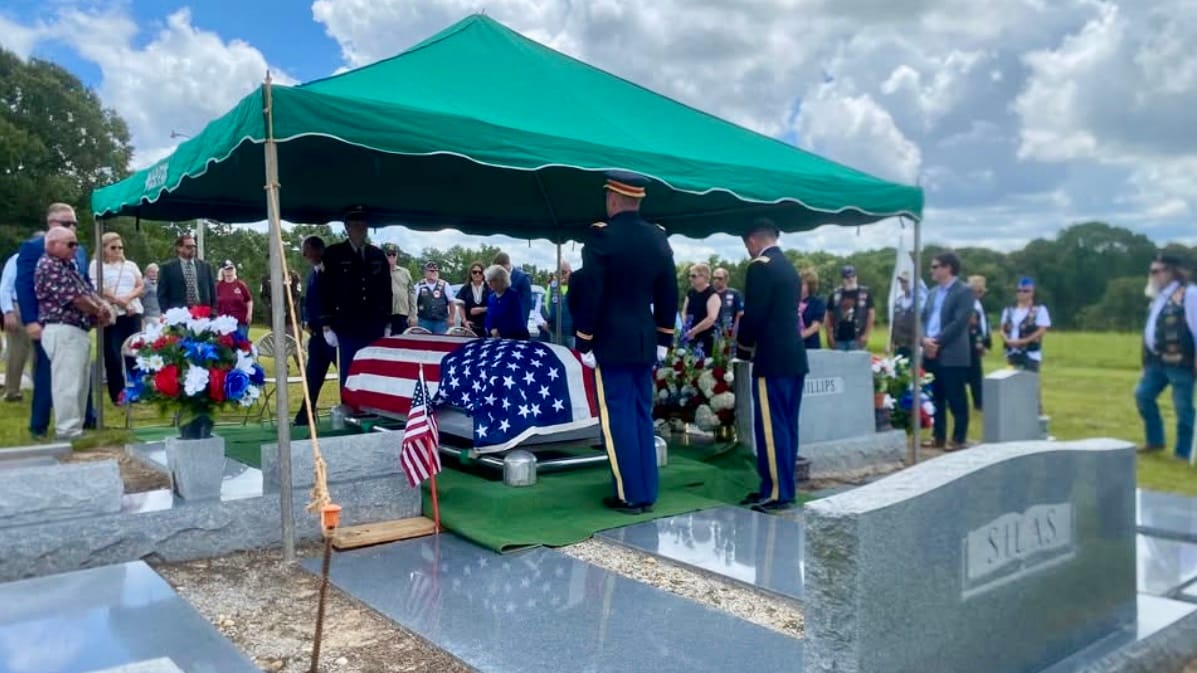Home at Last: WWII POW Pfc. Norman R. Thomas Receives Silent Alabama Welcome After 83 Years
Pacific theater soldier now rests in his home town of Verbena

The morning rush at Birmingham‑Shuttlesworth International Airport paused on Tuesday as an honor guard eased the flag‑draped casket of Private First Class Norman R. Thomas onto Alabama soil—his first homecoming since he went to war in 1941. For several long seconds engines thundered but voices did not; even the baggage trucks seemed to idle in respect.
“I did not know him, but I felt like I did,” said his nephew Ronnie Jones, watching from a few yards away. “I grew up hearing stories about him, and my grandmother never gave up.”
Thomas, a Verbena farm boy who joined the Army Air Forces straight out of high school, was assigned to the 48th Materiel Squadron in the Philippines. When Japanese forces overran Bataan in April 1942, he endured the brutal 65‑mile Death March and the squalor of Cabanatuan POW camp. Records show he died there on July 19, 1942, at age 20.
For decades his remains lay unidentified in a Manila cemetery. In 2014 the Defense POW/MIA Accounting Agency exhumed a common grave; mitochondrial DNA, dental evidence and historical research finally confirmed his identity on Jan. 29 this year. A rosette will soon mark his name on the Wall of the Missing, signaling to visitors that Thomas is no longer lost.
He comes home wearing, in spirit, a chestful of honors that include the Purple Heart, Bronze Star and Prisoner of War Medal—posthumous recognition for a life cut short yet lived with courage.
After a private family viewing in Clanton, the casket rested at Martin Funeral Home. Public visitation was held Thursday morning, July 17, followed by an 11 a.m. service and burial with full military honors at Pleasant Valley Baptist Church Cemetery in Verbena.
“Greater love hath no man than this, that a man lay down his life for his friends,” reads the family’s chosen epigraph from John 15:13—now etched not only in stone, but also in the memory of a county that finally brought its soldier home.




